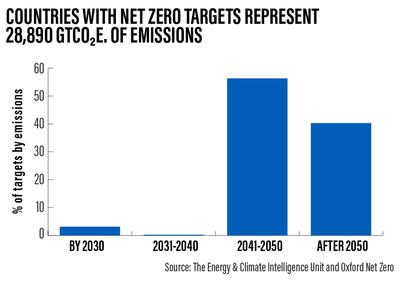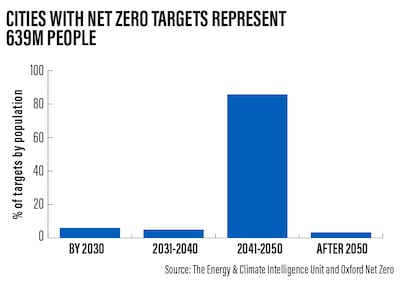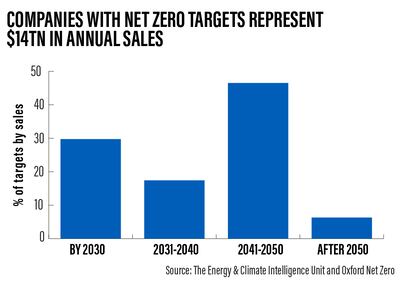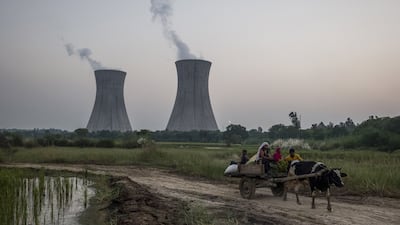Countries around the world are taking a pledge to reach net-zero emissions by the middle of the century to mitigate climate change. The UAE is the latest country to make the commitment to carbon neutrality and is the first in the Middle East and North Africa and only Gulf oil exporting nation to do so.
Here is what becoming climate neutral means.
What is net-zero?
Net zero can be achieved by balancing emissions of carbon dioxide with its removal, or by eliminating emissions. Reaching net-zero emissions is also variously known as carbon neutrality or becoming climate neutral. This particular climate goal is critical to curbing global warming under the Paris Agreement signed in 2015. The agreement calls for countries to cap the warming of the planet at 1.5°C above pre-industrial levels, while at the same time reaching net zero emissions by 2050.

Who has taken the pledge?
About 60 countries around the world, accounting for more than 54 per cent of greenhouse gas emissions, have pledged to become climate neutral. Some of the world's biggest polluters, including the US, the biggest producer of oil and gas, as well as China, the largest crude importer, and Australia, the biggest net exporter of coal, have pledged to become carbon neutral. Reaching net-zero emissions received a fillip during the Covid-19 pandemic in 2020, after record-low emissions prompted governments to enact stricter future controls.
What does it entail?
Countries that have pledged to go net-zero encourage businesses, especially highly polluting industry, to cut back on emissions in exchange for carbon credits. Businesses will also be subject to penalties for emitting highly polluting gases such as methane, which are 80 times more potent than carbon dioxide when it comes to furthering the warming of the planet. Sectors such as agriculture and the fossil fuel industries have come under strict regulations in countries that are striving to reach climate neutrality, to cut back on their methane emissions. Polluters such as China will no longer fund coal projects abroad as part of their targets.

Is it enough?
According to a study by Norway's DNV, the world will fall short of reaching Paris Agreement goals to reach net-zero emissions by midcentury, even if all power generated by then is green. Electrification is set to double in size by 2050, with renewables powering 80 per cent of requirements. However, in spite of the increase in clean power generation, carbon emissions from other sectors such as aviation, shipping, and trucking will be harder to reduce.

Is the Middle East part of the race to reach net-zero?
The UAE is the first Mena country and oil exporter to make a public commitment towards becoming carbon neutral by the middle of the century. The country will invest about $163 billion towards reaching its energy transition goals over the next three decades. It is already prioritising clean energy investments as part of its climate goals. The UAE has formed a hydrogen alliance backed by three state-owned companies to develop clean fuel to meet its decarbonisation goals.
Saudi Arabia, the world's biggest exporter of oil, is also investing in hydrogen and is building one of the biggest carbon-neutral cities in the world at Neom. Other oil-producing states in the Middle East, such as Iraq have called on the international community to support its efforts to transition away from fossil fuel. “An energy transition that fails to engage with fossil fuel-producing countries and their needs could have profound implications for regional and international security and the stability of global energy markets,” Iraq's Deputy Prime Minister Ali Allawi and Fatih Birol, the executive director of the International Energy Agency, said in an opinion column published by The Guardian last month.


